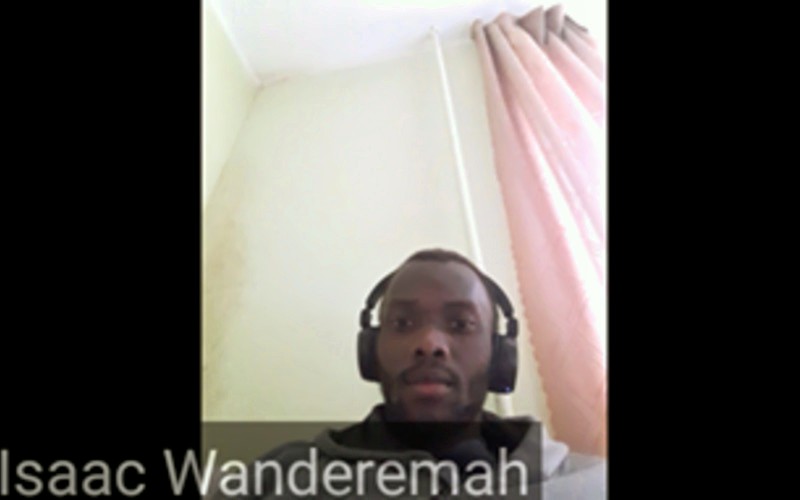App for the Adaptation of a New Staff Was Developed by MAI Students

From May 8 to 10, MAI hosted Aviahackathon-2020, the biggest IT event in the Russian aviation industry. This year, the event was held online.
More than 400 participants applied for the hackathon. Among them there were 3 teams made up of MAI international students. For 48 hours, the hackathon participants were looking for an original idea to create services, applications, modules and platform solutions for the benefit of the aviation industry. Six cases were presented for development: from Sheremetyevo International Airport, S7 Technics, Sheremetyevo Handling, MTS, Wildberries, MAI Unmanned Aerial Vehicle's Center.
We talked with a leader of a B-plan team Isaac Wanderemah, a MAI student who is the permanent participant of all MAI hackathons, who solved case from MTS company “Flexible Adaptation Platform for a New Employee Who Works Remotely”.
The problem of MTS case is that now new employees are entering a new job remotely, and it’s hard enough for them to immediately understand all the nuances of the work. As a result, the process of getting up to date with beginners can take up to 6 months. During this period, the new employee does not work at full strength, and to accelerate his or her adaptation, it needs requires the involvement of more qualified specialists who perform the functions of mentors and at the same time spend less time on their direct tasks during the period of mentoring, which reduces the overall effectiveness of the operating activities of companies.
To reduce the period of adaptation, companies often create corporate directories of business processes and online systems for corporate training and personnel adaptation, combined into common platforms. However, in-company training platforms show low efficiency. In addition, in the era of digital transformation and product teams, many processes at the unit level change quite quickly. And prepared online courses often need to be updated, which also requires the attraction of a large amount of resources.

A complete solution to the above problem should be in the form of an application or web platform. At the same time, the service should be adaptive to each new employee, take into account his individual background, as well as the position that the new employee has been accepted to, and the unit in which he will work.
Isaac told us how they decided to resolve this case, and about the online mode of the event.
Isaac, tell us please about your case at the Aviahackathon - 2020.
This time the hackathon was really competitive. My team B-plan did not get to the finals, but we did our best. We were solving the task from MTS company - “Flexible Adaptation Platform for a New Employee Who Works Remotely”. We created a flexible autonomous application that uses a machine learning (a neural network) to make a customized orientation platform for new employees. It includes training for continuing employees of any organization, based on their CV, company requirements, and their job jurisdiction or expected responsibilities. Unfortunately, our decision was not the best. Team101( took the bronze at the hackathon) created a chatbot to solve the same problem, which I think was awesome.
How did you find the remote format of the event?
Honestly say, the remote format was not easy for me. First of all, it involves conveying a lot of trust in the commitment and abilities of your teammates. On the other hand, to find a team was simpler. The checkpoints during the competition and the video conferencing was all fine. Access to required resources all depended on the teams, and on the internet accessibility and knowledge of the team members. Team coordination was tricky, but all possible via all forms of media. It was done successfully.